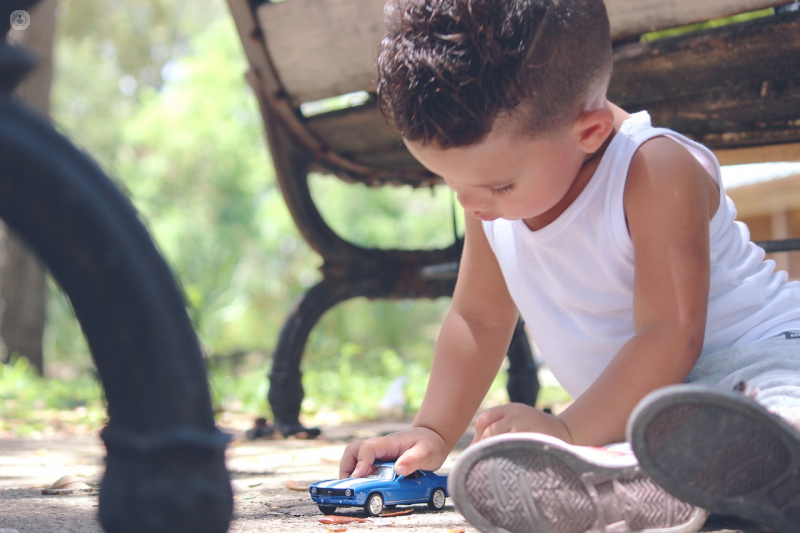

What is cognitive development?
Cognitive development concerns the changes that a child goes through in terms of thinking skills, and perception. It is a field of study looking at the changes in capabilities a child has over time, as well as an experiential account of what it is like to see and interact with the world from the child’s point of view. Cognitive development is part of the wider field of child development, which also includes developments in language learning and motor skills.
Problems with cognitive development can include:
- a delay to the child’s development, where certain abilities are acquired at a later stage
- a permanent lack of cognitive development beyond a certain point
Identifying whether a child has a developmental “delay” can be controversial, as there is no universally agreed-upon timeline for a child’s development. In most children, delays are not serious and the child should catch up by the time they are 5-6 years old.

What types of cognitive development problems can occur?
Cognitive development problems can include:
- not making gestures or pointing to things by the age of one
- not being able to follow simple instructions, imitate actions, or know the use of common household objects by the age of two
How are problems with cognitive development diagnosed?
If you are concerned your child might have a developmental delay, you should talk to your GP. They may refer your child for a specialist assessment by a paediatrician, who may in turn refer your child for tests to identify the cause of the problem.
What can cause cognitive development problems?
Cognitive development problems can occur as a result of:
- Genetics – causing specific cognitive problems or disorders such as Down's syndrome or autism
- Problems during pregnancy – including malnutrition, or exposure to alcohol or lead poisoning
- Problems during birth – including physical defects or lack of oxygen during birth
- Neglect as a baby – including malnutrition or lack of interaction with others
How are cognitive development problems treated?
There are a wide range of specialists who deal with the various difficulties your child may face. Treatment depends on what the cause of the problem is and whether your child has a specific disorder. You may come into contact with:
- Educational psychologists to help you child with learning and offer advice on what you can do at home
- Clinical psychologists to help with emotional or behavioural difficulties
- Occupational psychologists to help your child carry out day-to-day tasks and overcome cognitive difficulties
